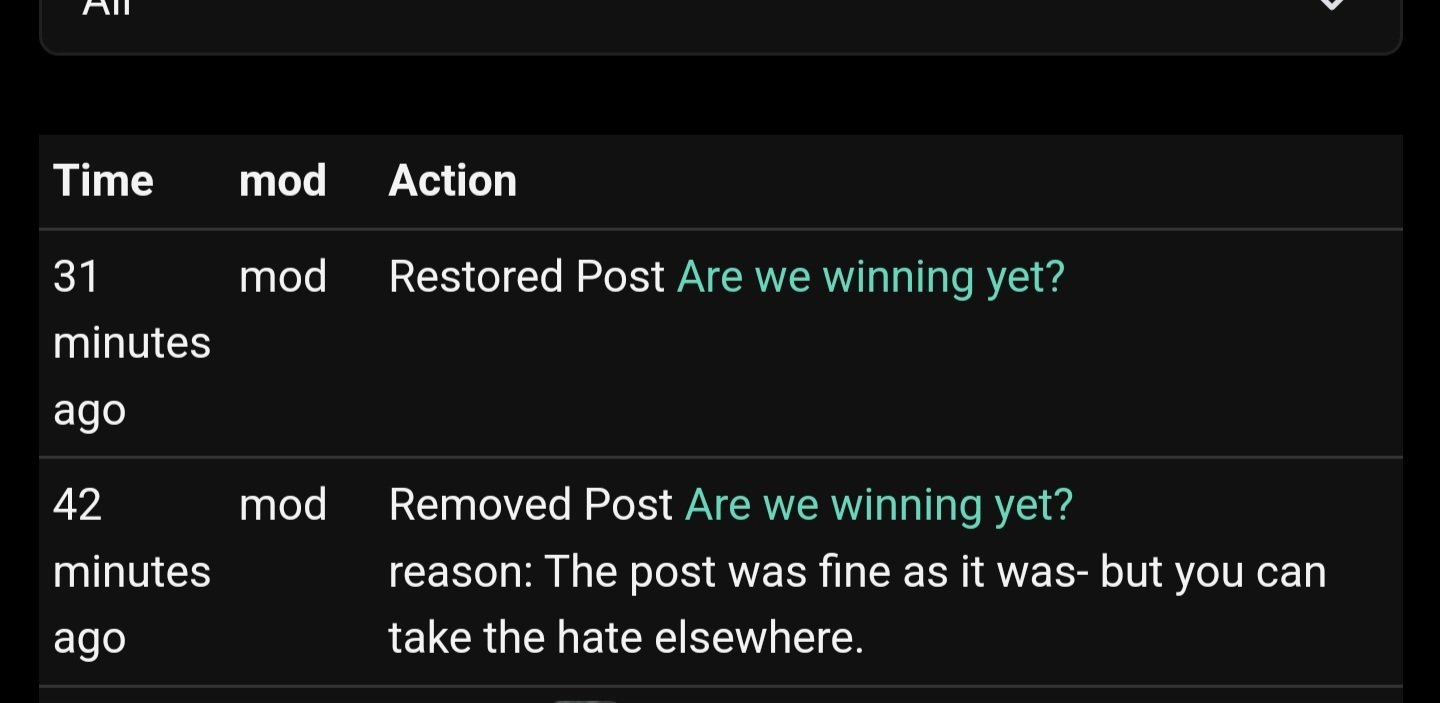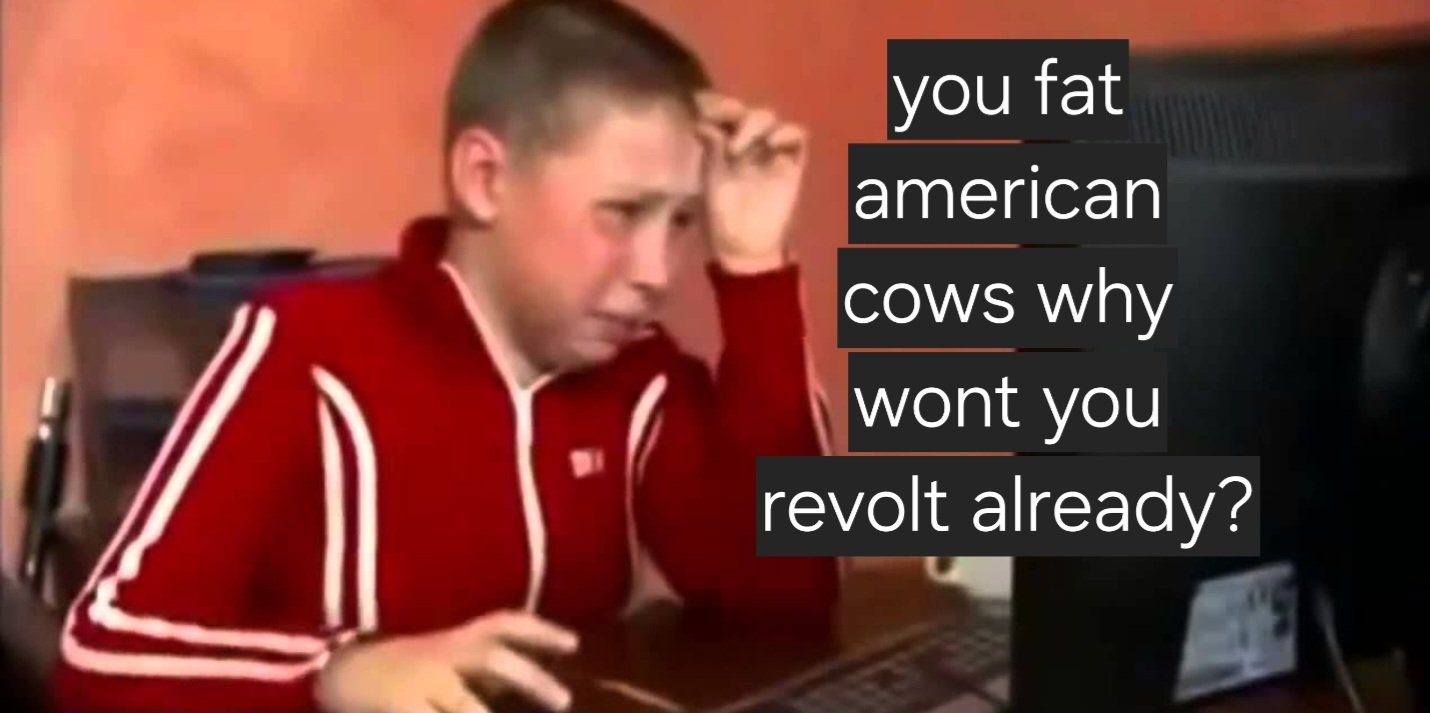this post was submitted on 21 Feb 2025
1419 points (97.9% liked)
Political Memes
6232 readers
2797 users here now
Welcome to politcal memes!
These are our rules:
Be civil
Jokes are okay, but don’t intentionally harass or disturb any member of our community. Sexism, racism and bigotry are not allowed. Good faith argumentation only. No posts discouraging people to vote or shaming people for voting.
No misinformation
Don’t post any intentional misinformation. When asked by mods, provide sources for any claims you make.
Posts should be memes
Random pictures do not qualify as memes. Relevance to politics is required.
No bots, spam or self-promotion
Follow instance rules, ask for your bot to be allowed on this community.
founded 2 years ago
MODERATORS
you are viewing a single comment's thread
view the rest of the comments
view the rest of the comments


As we all know, Ireland was utterly lacking in peasant uprisings before the Potato Blight.
That the greatest period of starvation in Ireland's modern history, during a period of continent-wide unrest had one rebellion with two deaths might suggest that starvation is not the revolutionary impetus you think it is.
The food wasn't there, because some ~90% of the conscripts sent off to WW1 were peasants, in a system that was already in a very precarious position regarding labor and backwards technology being unable to compensate for shortages of labor. Not only that, but WW1 resulted also in the massive buy-up of horses, also key to peasant life and agricultural production. Even in peacetime it was noted that rural peasantry were malnourished, even by the low standards of the Russian working class, and the situation did not improve during the wartime years.
... land-reformers who split with another, more radical socialist party, and who had only marginal support from the peasantry after 1907? How... revolutionary?
Oh great, increased car payments are just an expression of the human desire not to starve too.
Not ignorance so much as "still not getting what I'm saying".
Yes, but if the peasantry, who are objectively in a worse food situation than the urban proletariat, are starving, according to your hunger-based analysis of revolutionary impetus, they should be immensely revolutionary. Yet history shows, time and time again, that this is not the case - and Marx, living during the Revolutions of '48 you claim were driven by hunger, himself noted the lack of revolutionary sentiment in the peasantry. If starvation was what caused men to rise up and kill their superiors to feed themselves, the starving should be at the forefront - yet the most starving demographic of the period did not rise up. Marx, largely correctly, connected this with the unique interests of the peasantry as a class - starvation had nothing to do with revolution.
That's fair. In that case allow me to weaken/correct my position: While starvation isn't the revolutionary impetus, it's not nothing and does contribute to revolutions.
Source. They still weren't "having the time of their lives," to correct my previous assertion, but they weren't going hungry either.
Conservative counterrevolutionaries don't vote for socialist revolutionary parties, which the Trudoviks were. They split with the SRs over the question of whether they should participate in the Duma so they definitely weren't merely land-reformers. Also where did you get that they had only marginal support from the peasantry after 1907?
I mean yeah why not? If we assume there's a person X who's financially in a bad spot, then the reason person X would have issue with the idea of increased car payments is that the money for the car would have to come from somewhere else. Fundamentally there's not much difference between a working person getting a pay cut (or facing rising food prices) and a farmer having a bad harvest.
Were the peasantry in an objectively worse food situation than the urban proletariat? If you have a something supporting that claim please link it.
Peasants didn't really revolt in the same way urban workers did, and urban workers were absolutely more revolutionary (though in some places the gap shrank with time), but peasant uprisings did happen during in 1848-1849.
Source.
Also on the 1848 revolutions as a whole,
There's a reason I said "in part". I know that the hungry forties were only one contributing cause of the revolutions of 1848, and I don't think you'll find a reputable historian that considers them irrelevant.